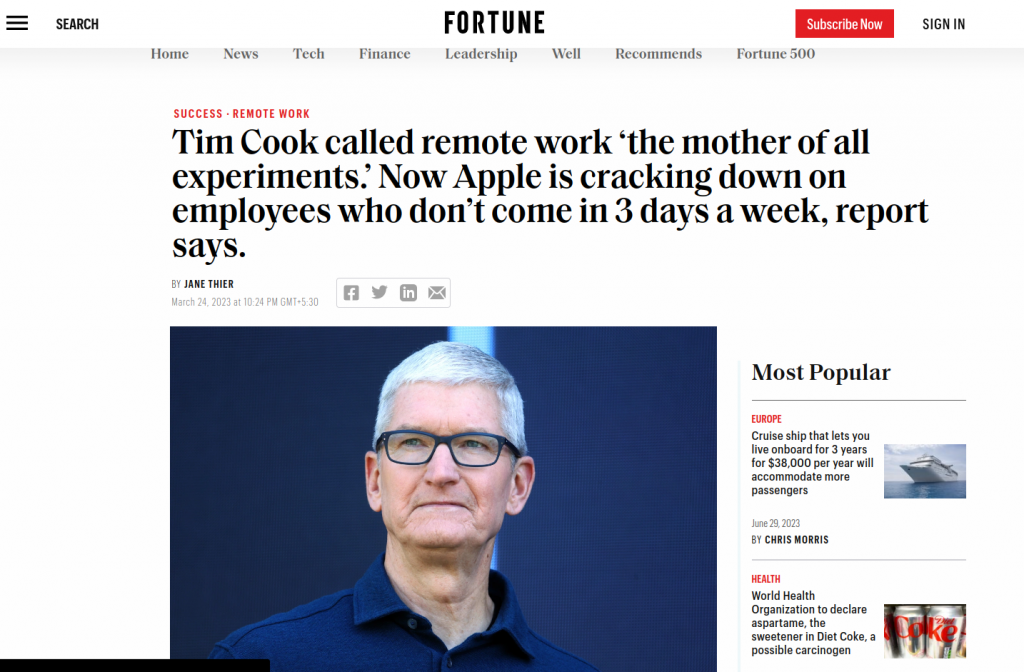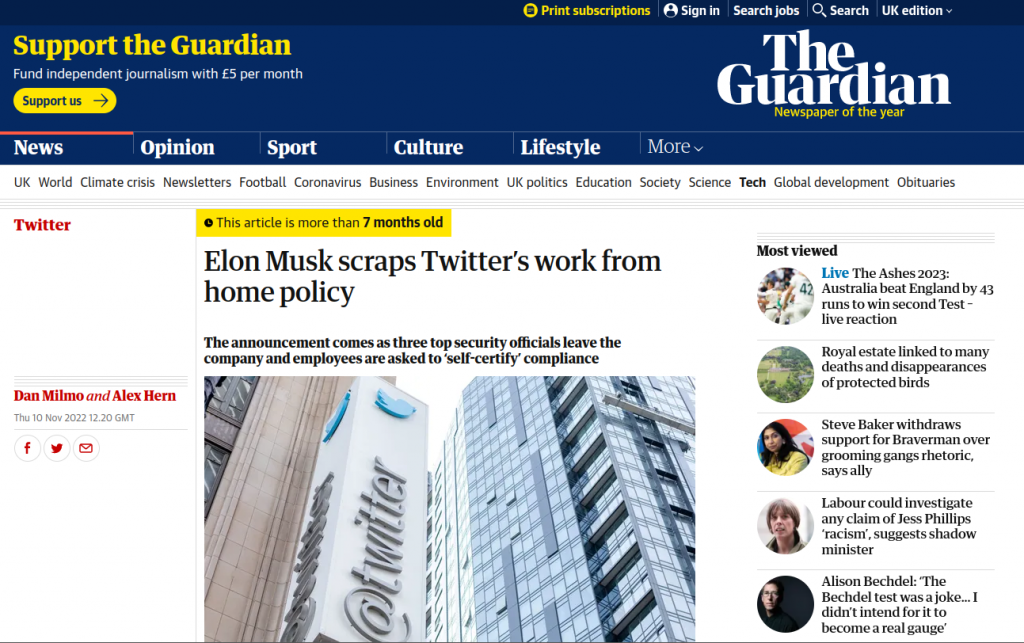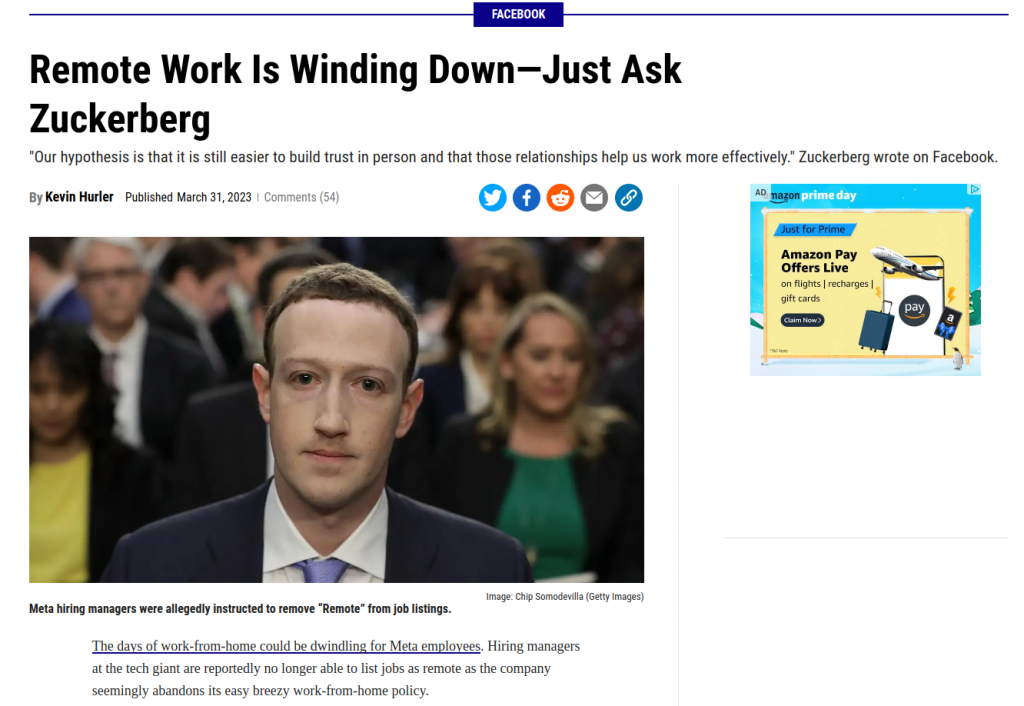If You Can Do Your Job From Home, Be Scared. Be Very Scared!
Sometimes, It seems like most people have added “Remote Work” to a long list of taboo topics that no one should discuss at work. Topics like Religion, Politics, Sexual Orientation, Medical Issues, etc.
Most people know that remote work is a horrible idea for organisations of any size, but they are afraid to call it out because they don’t want to appear out of touch with their employees/colleagues. Others are afraid to be viewed as hostile figures who wish to create tension with employees or be perceived as a manager who doesn’t trust their employees.



So, employers stay silent, and now everyone thinks remote work is the best business idea of the last 200 years.
Most of these shenanigans use personal anecdotes to defend the benefit of remote work. They say they are more productive at home, with fewer distractions and more time for daily (personal) chores. I do not agree or disagree with that statement completely, as it could be dependent on specific roles.
When Remote Work Could be Beneficial:
If you are an individual contributor and mostly work without the need to collaborate in real time, you can be productive in remote work. For example, If you are a finance analyst who dives through ledgers, borough thru tonnes of CSVs and crunch numbers all day, you may be more productive in Home.
When Remote work could be less than Optimal
If you are a creative or knowledge worker (Designer/Developer), chances are you’d NEED to collaborate with, break down/delegate, get feedback etc. In these roles, it will be almost impossible to get a calendar from 6 different people to drive consensus. Whereas if all of your stakeholders are in the office, it is a mere “Shout” or “Wave” and 3 mins conversation following it.
Google has officially changed its mind about remote work
Google leadership publicly admitted that remote work no longer works for them, and that’s the reason they want all of their employees back behind their desks.
Last week, Fiona Cicconi, Google’s chief people officer, wrote an email to the entire company stating, “Going forward, we’ll consider new remote work requests by exception only.” This is horrible news for employees and some companies who believe that remote work is the greatest idea since the invention of the internet.
Let me declutter the above statement for you.
Google is the biggest tech company in the world that created 100s of resources and tools to enable employees to work remotely, admitting defeat.
Despite the release of many communications tools that enabled workers across the globe and all industries to work remotely, it is finally saying that remote work doesn’t work. Let that sink in. Google’s remote employees are unhappy, but Google’s leadership rarely pay attention to the feeling of their employees (after Larry left Alphabet inc). They only pay attention to the stock price and what is recommended at the shareholder’s meeting.
Google is not alone. Apple, Microsoft, Facebook, and Amazon also laid off most remote employees.
Remote work destroyed the most profitable industry
As you have seen above, Google leadership is no longer willing to offer their employees 100% remote jobs. They want their employees in the office and productive.
You might ask, why is this happening?
It is happening because you witnessed the destruction of the Tech industry in the last two years. The tech industry crumbled because most Leaders were afraid to tell their remote employees to come to the office, so they did the next best thing: they lost money and laid remote employees off (mostly).
According to the Layoffs tracker, more than 200,000 people were laid off in 2023, and over 164,000 employees were laid off in 2022. This is a clear message to anyone who works in the tech industry, stop working remotely or start interviewing soon.
This is exactly what the most innovative CEO in the world did when he bought Twitter.
When Elon Musk bought Twitter, he found the company in tatters. Musk gave them the same two options he gave his Tesla employees, “If you do not return to the office, you cannot remain at the company. End of story.”
That was the end of the story for many of Twitter’s employees, Musk fired anyone who refused to show up at the office, and his company is more productive and innovative than ever.
Musk ended remote work at Twitter, and most people hated him.
Not every executive had the guts to do what Elon Musk did, but now most wish they did because every company needs to lay off their unproductive employees.
- Remote employees are less visible. When it comes to your value to your company, you have to be visible. If you think visibility is not important, ask Kayne West.
- Remote employees don’t have a strong connection to other employees or their companies. Relationships are extremely important. I established my professional credibility and earned my colleagues’ respect by connecting with them face-to-face, not through a computer screen.
- Remote employees are less invested in their work or career. Since most employer link visibility and ability together, I understand why more than 3000 HR managers believe that.
These reasons led Google, Microsoft, Amazon, Facebook, and Zoom to lay off their remote employees first. This is a horrible trend for people who want to work remotely, especially since most remote workers say it could take more than six months to find a new job
In conclusion, I’d like to recommend Richard Baldwin’s video

